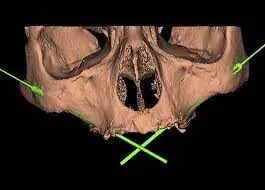Computer-assisted implant surgery crucial tool in zygomatic implant placement

Computer-assisted implant surgery crucial tool in zygomatic implant placement suggests a new study published in Journal of Prosthetic Dentistry.
Digital technology can improve the success of zygomatic implant (ZI) surgery. However, the reliability and efficacy of computer-assisted zygomatic implant surgery (CAZIS) need further analysis.
The purpose of this scoping review was to provide an overview of the placement accuracy, implant survival, and complications of CAZIS.
A systematic search of English and Mandarin Chinese publications up to May 2023 was conducted in PubMed, Web of Science, Embase, and Wanfang database. The nonpeer-reviewed literature was searched in the trial register (clinicaltrials.gov). Clinical studies and cadaver studies on CAZIS were included. After data extraction and collection, the findings were critically reviewed, analyzed, interpreted, and discussed.
Results
Forty-one studies met the inclusion criteria. After excluding publications with duplicate data, retaining the most recent, 28 articles were included in this scoping review. Of these, 18 were on static computer-assisted zygomatic implant surgery (sCAZIS), 8 on dynamic computer-assisted zygomatic implant surgery (dCAZIS), and 2 on robot-assisted zygomatic implant surgery (rAZIS). Excluding the outliers, the mean deviations of ZIs in the sCAZIS group (with 8 articles reporting implant placement accuracy, 183 ZIs involved) were: 1.15 ±1.37 mm (coronal deviation), 2.29 ±1.95 mm (apical deviation), and 3.32 ±3.36 degrees (angular deviation). The mean deviations of dCAZIS (3 articles, 251 ZIs) were: 1.60 ±0.74 mm (coronal), 2.27 ±1.05 mm (apical), and 2.89 ±1.69 degrees (angular). The mean deviations of rAZIS (2 articles, 5 ZIs) were: 0.82 ±0.21 mm (coronal), 1.25 ±0.52 mm (apical), and 1.46 ±0.35 degrees (angular). Among the CAZIS reported in the literature, the implant survival rate was high (96.3% for sCAZIS, 98.2% for dCAZIS, and 100% for rAZIS, specified in 14 of 21 clinical studies). The incidence of complications was low, but, because of the few relevant studies (4/21 specified), valid conclusions regarding complications could not be drawn.
CAZIS has demonstrated clinical efficacy with high implant survival rates and placement accuracy. Of the 3 guided approaches, rAZIS showed the smallest 3-dimensional deviation
Reference:
Clinical efficacy of computer-assisted zygomatic implant surgery: A systematic scoping review. Wenying Wang, Xinbo Yu, Feng Wang, Yiqun Wu. Published:November 24, 2023DOI:https://doi.org/10.1016/j.prosdent.2023.10.032
Keywords:
Computer-assisted, implant, surgery, crucial, tool, zygomatic, implant placement, Journal of Prosthetic Dentistry, Wenying Wang, Xinbo Yu, Feng Wang, Yiqun Wu



